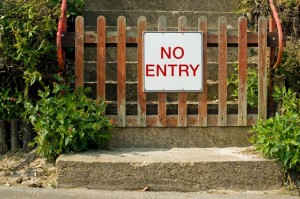A recent post on problems with the interview process left off with a question: How are interviewing issues connected to the Corporate website? Here are a couple of steps toward an answer:
Some of the best Career sites I’ve visited signal that they are serious about hiring–and that they have a supportive attitude toward candidates–by offering a thoughtful, well-developed description of the hiring process. Ideally, that includes a preview of what to expect in the interview process, with tips for success. Consider a couple of examples at Merck and CarMax. Not only is the information valuable in both cases, but by their tone and approach the two treatments convey additional information about the respective (very different) companies.
Why don’t more companies do this? In many cases, I’ll bet, it’s because communicating with website visitors at a detail level seems like a low-priority item that would take time no one has. But also, I suspect, because the process isn’t well-defined, or possibly doesn’t even exist. For example–in terms of interviews–there may not be a consistent approach, so different interviewers use whatever method occurs to them.
Personalizing the interview process is not a bad thing, but completely randomizing it probably is. So one value of providing job-seekers with online information about interviewing might be internal. That is, the process of crafting a message could/should lead to further thought about what really does go on in a company’s interview process, and whether improvement is needed.
I haven’t (yet) found any analysis or even evidence supporting the idea that website development can drive process improvement. But I can report on my own experience, much of which has had to do with communicating business and technical information in documents, presentations, and online content. More often than not, once the decision was made to “publish” a process or project to a broader audience, much (much) re-thinking happened. The necessity of explaining something frequently reveals the need for clarification, adjustment, or even a return to the drawing board.
Worth the time and effort? Well–if you believe the studies that say employment interviewing is often poorly done, and that bad interviewing results in costly hiring mistakes and/or new-hires who aren’t enthusiastic about the company–maybe so!
Bonus: It would be great if corporate Career sites actually stated the company’s expectations for its interviewers. I haven’t found an example of that yet, but hope springs eternal!
Double Bonus: I had a good time reading the uninhibited opinions of HR consultant Wendell Williams on interview questions. You might too.
(Thanks to Xurble for today’s question mark.)
Cynthia Giles has followed a serpentine career path from academia to publishing to marketing and design to information technology and corporate communications. There’s plenty of detail about this journey at www.cynthiagiles.com, but briefly--the common theme has been ideas, and how to present them effectively. Along the way, she became an accidental expert on data warehousing and business intelligence, and for the past ten years she has combined corporate contracting with an independent consulting practice that focuses on marketing strategy for smaller businesses and non-profits.
Having spent quite a bit of time looking for work, and anywhere from two weeks to two years inside a wide variety of American companies—she has given much thought to what works (and what doesn’t) when it comes to creating a great employment fit.



